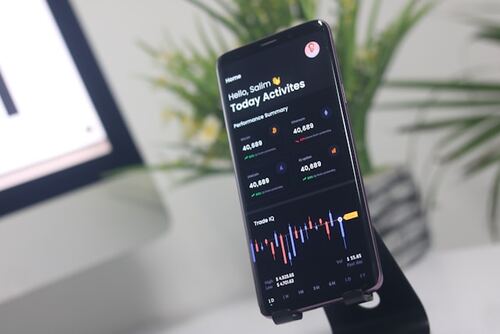
It is the most important stock market index that monitors the results of the largest 30 blue-chip corporations which can be found among the DAX in Frankfurt. As an international investor, if you are planning to invest in the dax, here are 5 important things you need to keep in mind:
- The composition and weightage of companies.
DAX index comprises of the 30 biggest and most liquid firms based within German territory. The sectoral breakdown and weights assigned to various companies help assess how exposed the index is. As an illustration, technology and industrial products are currently leading in the DAX compared with other commodities. The whole index movement can be affected by this writing.
- The macroeconomic indicators tracking for the German economy
The DAX serves as a yardstick for the German stock exchange and correlates closely with the general condition of the German economy. Therefore as an investor it is important to monitor all the German critical macroeconomic indicators such as GDP growth rate, inflation, unemployment rates, interest rates, and exchange rate. The DAX is sensitive to the global trading patterns and the nature of economic developments in the euro zone because German economy is export driven. Companies and the index are susceptible to any major changes in the domestic or international economic environment.
- Analysis of quarterly earnings of constituent companies
The quarterly and even yearly earnings of these stocks heavily determine a few months to years ahead movements with regards to the DAX index. This involves analyzing the earnings reports of top DAX companies to detect trends in revenue, profit and outlook as an investor. When major players are taken by surprise, for example, to announce unexpected low numbers that would put down on the overall DAX.
- Consider Currency Risk of Investing in a Foreign Market
Moreover, international investors are also subjected to currency risk as the DAX is expressed in Euros. The index may record gains but any changes in the exchange rate between the euro and investor’s home currency will affect the returns. Lower actual returns in home currency terms imply a depreciating home currency. Therefore, it can be recommended to either hedge the currency risk or to consider averaging out the currency fluctuation through an extended financial projection.
- Monitoring Global Events and Mood Swings
As a trade-dependent country, Germany’s economy like the DAX can respond sensitively to any global political and economic conditions relevant to international trading and capital flows. For instance, trade disputes, geocultural disquiets, and risk appetites of investors can lead to sudden swings in this particular index or even a complete crash. As an investor, it is important to check on global macro conditions and trends in order to make proper allocation of assets for purposes of effective risk management.“
Conclusion
5paisa investors must undertake a rigorous research exercise on the composition of DAX and dynamics, routine analysis of fundaments, macros, global risks, among others if they are to make informed investment decisions into this essential European Stock Index. Short-term volatilities may be navigated by a long term investment horizon and diversification.





